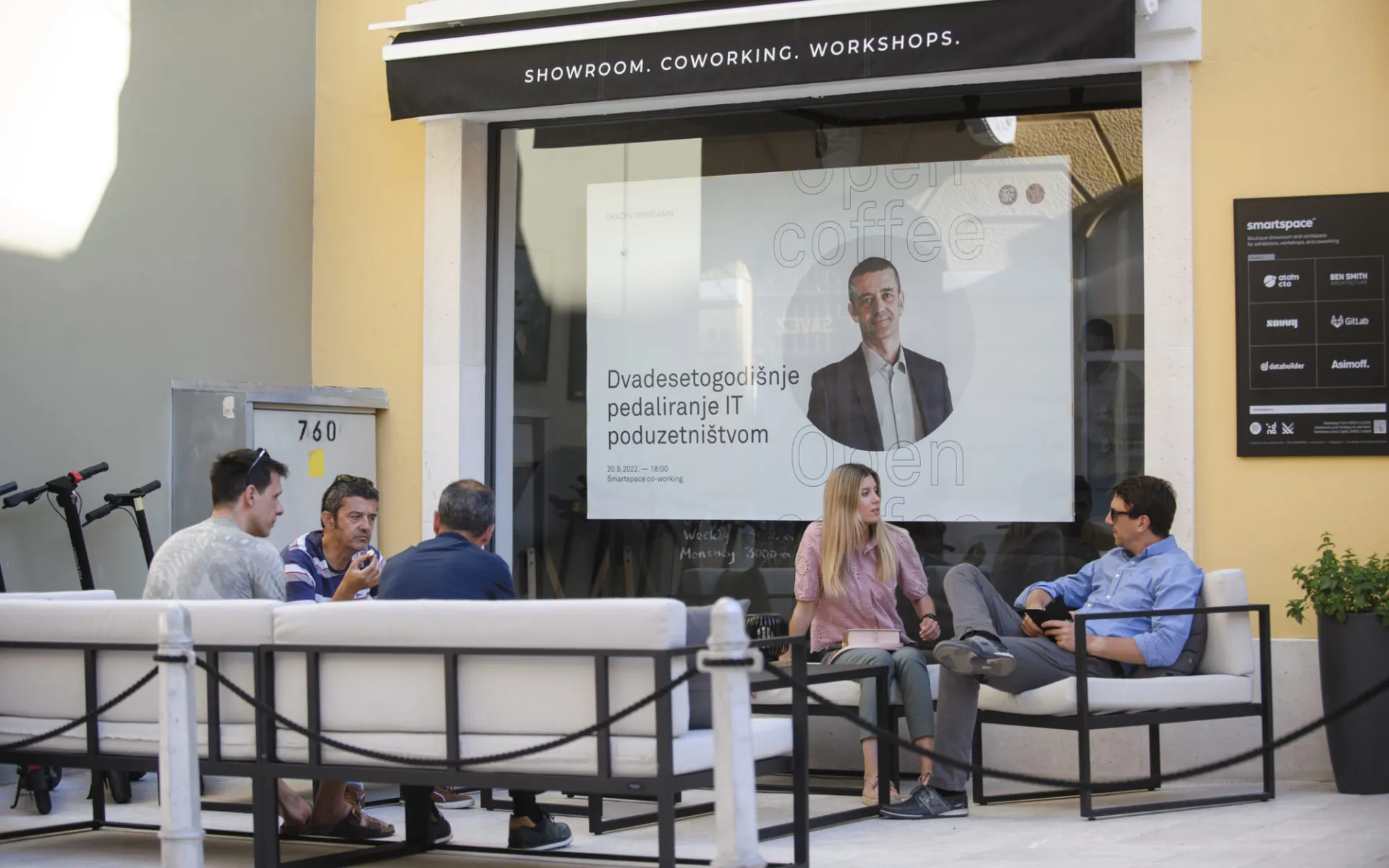Coworking in Croatia: A Fast-Growing Movement
Coworking in Croatia has grown rapidly in recent years, fueled by the rise of digital nomads, remote workers, and flexible work trends. Cities like Split, Zagreb, and Dubrovnik have become hotspots for location-independent professionals who want more than just a desk — they want community, lifestyle, and opportunities to connect.
As we head into 2025, coworking is no longer just about providing Wi-Fi and chairs. It’s about creating spaces where work, collaboration, and lifestyle merge. Let’s explore the key coworking trends that will shape Croatia this year.
1. The Digital Nomad Boom Continues
Croatia’s digital nomad visa, introduced in 2021, opened the doors to thousands of professionals from around the world. In 2025, the trend is only accelerating. Nomads are choosing Croatia for its:
-
Affordable lifestyle compared to Western Europe.
-
Coastal cities like Split and Dubrovnik with great weather and beaches.
-
Growing coworking communities that provide structure and support.
Expect coworking spaces to continue adapting to nomads with short-term passes, flexible memberships, and services like business support or visa guidance.
2. Hybrid Work Brings Locals Into Coworking Spaces
It’s not just nomads anymore. Many Croatian companies and startups are adopting hybrid work models, allowing employees to split time between home and the office. This shift means more locals are turning to coworking spaces for:
-
Professional environments close to home.
-
Meeting rooms for client presentations.
-
A social alternative to working from the kitchen table.
Coworking in Zagreb and Split especially will see a rise in hybrid workers looking for day passes and part-time memberships.
3. 24/7 Coworking and Night Work Options
One unique trend in Croatia is the demand for night coworking spaces, especially in tourist cities like Split. Many Americans and Canadians working U.S. hours need access to quiet, professional spaces at night.
In 2025, expect more coworking hubs to expand into 24/7 access, offering night passes to accommodate international time zones and night owls.
4. Coworking + Coliving = Community Hubs
The line between living and working continues to blur. More coliving and coworking hybrids are emerging in coastal destinations like Hvar, Zadar, and Split. These spaces allow nomads to live, work, and network under the same roof.
This trend reflects the growing demand for community-oriented lifestyles where professionals don’t just rent a desk — they join a tribe.
5. Beyond Work: Value-Added Services
In 2025, coworking spaces in Croatia are becoming multifunctional hubs that go beyond desk rentals. Expect to see:
-
Creative services (design, branding, marketing).
-
Business support (company formation, accounting, legal help).
-
Events and workshops (networking, skill-sharing, cultural activities).
-
Wellness offerings like yoga sessions, mindfulness, or partnerships with local gyms.
Spaces that combine work with business and lifestyle support will attract long-term members.
6. Location Still Rules: Old Town Charm vs. Modern Offices
Coworking in Croatia isn’t one-size-fits-all. Two types of spaces are emerging:
-
Historic Old Town coworking hubs (like Smartspace in Split) — ideal for nomads who want to work in vibrant, cultural centers.
-
Modern business district offices — attracting startups and hybrid corporate teams.
Both models will thrive, but Old Town coworking spaces are particularly attractive for nomads seeking a balance between work and leisure.
7. Sustainability and Local Integration
Sustainability is becoming a core value for coworking spaces. In 2025, expect to see:
-
Eco-friendly design (recycling, renewable energy, green furniture).
-
Partnerships with local cafés, artisans, and cultural institutions.
-
Community initiatives that support both locals and nomads.
This integration helps coworking spaces feel less like “imported concepts” and more like authentic parts of Croatian cities.
The Outlook for Coworking in Croatia (2025 and Beyond)
Croatia is now firmly on the map as a coworking and digital nomad destination. With its mix of coastal beauty, historic charm, and growing professional infrastructure, it’s no surprise that more nomads, startups, and hybrid workers are calling it home.
The future of coworking in Croatia lies in flexibility, community, and value-added services. Spaces that adapt to global professionals while staying rooted in local culture will lead the way.
👉 If you’re planning to work remotely in Croatia, consider exploring coworking spaces in Split’s Old Town like Smartspace — where productivity meets Mediterranean lifestyle.



